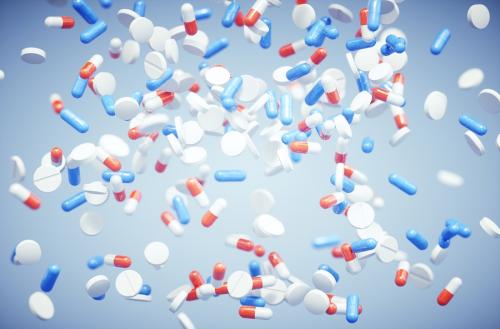FDA will evaluate claims and other information on a dietary supplement’s website to establish the product’s “intended use.” In general, a dietary supplement is allowed to make claims about having an effect on the “structure” or a “function” of the human body. If FDA finds that the product is intended for use in the cure, mitigation, treatment, or prevention of disease, it will be deemed a “drug” under section 201(g)(1)(B) of the Federal Food, Drug, and Cosmetic Act (“FD&C Act”). FDA routinely takes enforcement action against such unapproved new drugs.
In a February 18, 2021 Constituent Update, FDA announced that it had issued warning letters to 10 companies for illegally selling dietary supplements, containing a variety of ingredients, that all claim on their websites, as well as their Amazon product pages in some cases, to cure, treat, mitigate, or prevent depression and other mental health disorders as follows:
ProHealth Inc. for Full Spectrum™ St. John’s Wort Extract41T for claims involving anxiety and mild-to-moderate depression;
Dr. Garber’s Natural Solutions for Dr. Garber’s Depression Relief for claims involving depression and postpartum depression;
FDC Nutrition Inc. for Inositol 100% Pure Free Form for claims involving anxiety, blood sugar control, insulin sensitivity, and fertility in women;
Blossom Nature, LLC for products containing St. John’s Wort with claims including “St. John’s Wort is effective as prescribed antidepressants but with no side effects;”
Native Remedies dba Silver Star Brands for MindSoothe Drops and MindSoothe Capsules with claims involving depression, insomnia, loss of appetite, binge eating, overeating, “loss of interest in activities that are normally enjoyable,” and “difficulty concentrating, remembering details, and making decisions;”
Wholesome Wellness for its Natural Anxiety & Depression Relief product with claims involving “7 healing herbs” that act as a “natural antidepressant,” including Gotu Kola (wound healing and disease prevention), Rhodiola Root (depression and anxiety), St. John’s Wort (mild-to-moderate depression), Ashwagandha Root (anxiety and depression), Lemon Balm Leaf (a “range of medical disorders,” anti-inflammatory compounds, antithrombotic properties), Ginkgo Leaf (to cure diseases, protects against neuronal damage), and Eleuthero Root (diabetes, cognitive disorders, and frequent colds);
SANA Group LLC for Sleep Sana “Sleep Drops” and “Sleep Shots” products claiming to contain ingredients for treating various diseases and symptoms, including GABA (anxiety, attention deficit hyperactivity disorder (ADHD), blood pressure, pain), L-Tryptophan (insomnia, sleep apnea, depression, anxiety, facial pain, premenstrual dysphoric disorder (PMDD), ADHD, Tourette’s syndrome), Valerian (sleep disorders), and Melatonin (seasonal affective disorder (SAD), “winter depression”);
Mountain Peak Nutritionals for Mood Support, which the website says contains ingredients such as 5-hydroxytryptophan (5-HTP) (“increases serotonin levels,” “equal effectiveness compared to drugs like Prozac, Paxil, and Zoloft”), B-complex vitamins (“often shown to be deficient in depressed patients”), ginkgo extract (“antidepressive effects”), and St. John’s Wort (“just as effective as pharmaceutical antidepressants in alleviating symptoms of mild to moderate depression, and with very few side effects”);
Lifted Naturals for Mood Boosting Probiotic and claims for “PREBIOTIC, GOS– the ONLY prebiotic that’s been proven to help with anxiety,” and treatment of postpartum depression; and
Enlifta LLC for “Enlifta Mood Elevator,” a “doctor designed” “antidepressant” and “Enlifta Anxiety” involving claims for “7 proven ingredients that remedy severe anxiety,” including Chamomile Flower (anti-inflammatory), English Lavender Flower Powder (insomnia and anxiety), and Passion Flower Herb Powder (“One study showed it worked as well as a common prescription medication for treating anxiety, but had fewer short-term side effects”).
FDA’s February 18, 2021 letters note that depression and other diseases are not amenable to self-diagnosis or treatment without the supervision of a licensed practitioner and, therefore, it is impossible to write adequate directions for a layperson to use the products safely for the intended purposes. To reduce the risk of potential FDA enforcement action, all dietary supplement manufacturers should ensure that they only make appropriate structure/function claims for their products.
